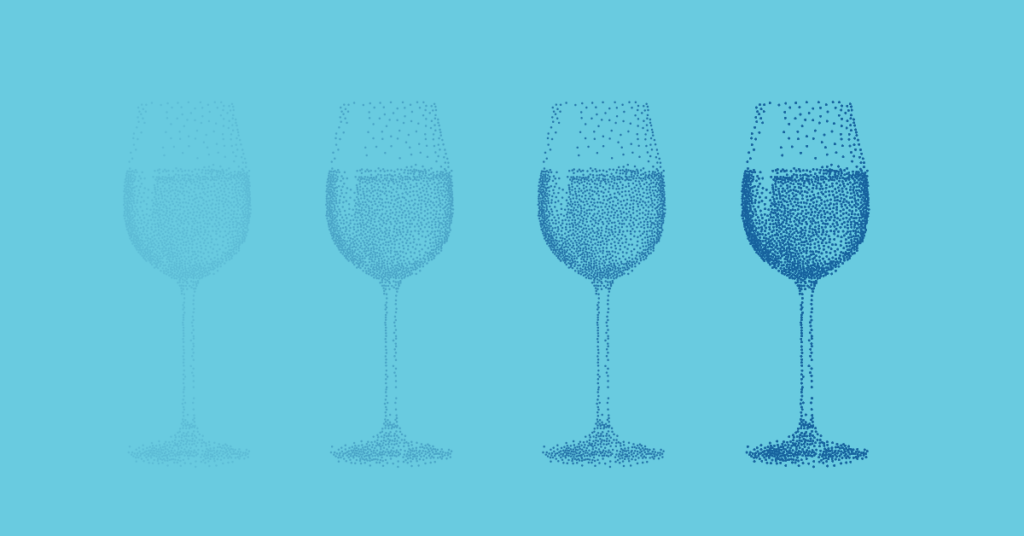Am I Drinking Too Much?: Signs of Alcoholism & Alcohol Abuse
May 14, 2020
Tags:

The voice in your head that tells you you’re just drinking to relax or that you’re only having fun with your friends may also be asking whether you’re still in control. You may notice that you feel irritable every day until your first drink, or a friend or family member has questioned whether you’re drinking too much. Maybe you are facing financial or legal problems related to alcohol. Spending time evaluating if your alcohol use is no longer healthy can be a turning point leading to a more balanced and fulfilling life.
Causes of Alcoholism & Alcohol Abuse
While scientists have established that genetics and heredity are factors in alcohol abuse, many things like family life, childhood events, and mental health issues are also contributors in shaping use of alcohol.
Children with a parent who abuses alcohol have an increased risk of abusing alcohol. The Centers for Disease Control reports that alcohol is the most commonly abused drug among young people in the United States. Early initiation of drinking along with childhood adverse events like emotional, physical, or sexual abuse are associated with a higher risk of alcohol abuse. It is more common for children and adolescents with mental health disorders, such as ADHD, anxiety, and depression, to begin abusing alcohol as teens. The result is emotional immaturity leading into adulthood which perpetuates alcohol abuse in place of developing coping skills.
Of course, this doesn’t apply to everyone who struggles. Maybe you view yourself as simply a stress drinker to cope with things like financial problems, marriage or divorce, workplace issues, or death as we’ve seen with surging alcohol sales in response to the COVID-19 crisis. Is this type of drinking harmless?
While self-awareness can be difficult, the following self-check is a guide to help you determine whether you have alcohol use disorder (AUD) or signs of alcoholism, which is a part of AUD. This tool is not a replacement for a professional assessment, but an opportunity for reflection.
Signs of Alcoholism & Alcohol Abuse: A Self-Check
In order to diagnose an AUD, behavioral health professionals may use the Diagnostic and Statistical Manual of Mental Disorders (DSM) which ranks the disorder as mild, moderate, or severe based on responses to these questions. Spend time pondering each question before noting your answer.
In the past year, have you:
- Had times when you ended up drinking more or longer than you intended?
- More than once wanted to cut down or stop drinking, or tried to, but couldn’t?
- Spent a lot of time drinking? Or being sick or getting over other after effects?
- Wanted a drink so badly you couldn’t think of anything else?
- Found that drinking—or being sick from drinking—often interfered with taking care of your home or family? Or caused job troubles? Or school problems?
- Continued to drink even though it was causing problems with your family or friends?
- Given up or cut back on activities that were important or interesting to you, or gave you pleasure, in order to drink?
- More than once gotten into situations while or after drinking that increased your chances of getting hurt (such as driving, swimming, using machinery, walking in a dangerous area, or having unsafe sex)?
- Continued to drink even though it was making you feel depressed or anxious or adding to another health problem? Or after having had a memory blackout?
- Had to drink much more than you once did to get the effect you want? Or found that your usual number of drinks had much less effect than before?
- Found that when the effects of alcohol were wearing off, you had withdrawal symptoms, such as trouble sleeping, shakiness, restlessness, nausea, sweating, a racing heart, or a seizure? Or sensed things that were not there?
Positive responses to at least two of these questions point to an AUD. Severity ratings are scored as: mild – two to three; moderate – four to five; and severe – six or more.
The nature of the questions demonstrates that the diagnosis of an AUD is directly related to the impact alcohol has on your life and not the amount of alcohol you are drinking. Your honest answers may be hard to accept, but recognition is the first step toward seeking professional treatment and regaining control.
When to Seek Care
When you recognize that your life is being negatively impacted by alcohol use, it’s time to get professional help.
It takes honesty and courage to acknowledge that alcohol is a problem, and it’s important to seek treatment when you are aware. It’s never too late to begin the journey, and you will find others in recovery who understand. With professional support and a substance use treatment program, you can change your life.





